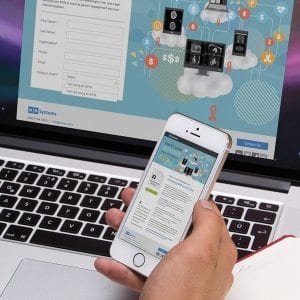 Marketing with a strong undertone of happiness has become a growing trend in 2015. Big name brands like McDonalds, Coca-Cola, and Dove have already seen massive success thanks to their positivity-based marketing campaigns. These brands are employing a variety of marketing avenues to make the world a happier place. The campaigns have spanned from tackling online negativity to having a love-inspired currency. Although the ultimate goal of the advertising is undeniably to make more money, the added side effect of happiness results in the brands having greater engagement with their consumers, especially the highly-desirable millennial demographic.
Marketing with a strong undertone of happiness has become a growing trend in 2015. Big name brands like McDonalds, Coca-Cola, and Dove have already seen massive success thanks to their positivity-based marketing campaigns. These brands are employing a variety of marketing avenues to make the world a happier place. The campaigns have spanned from tackling online negativity to having a love-inspired currency. Although the ultimate goal of the advertising is undeniably to make more money, the added side effect of happiness results in the brands having greater engagement with their consumers, especially the highly-desirable millennial demographic.
A recent study by ZenithOptimedia found that brands that can elicit feelings of happiness, especially in millennials, have a greater chance of establishing and securing lasting relationships with the consumer group. According to the strategic insights director for ZenishOptimedia, “By understanding how millennials find fulfillment in their lives, brands can play a meaningful role to support and enhance their pursuit of happiness.”
McDonald’s has been utilizing “love” as a common thread through the entirety of their “I’m Lovin’ It” campaign, which dates back to the early 2000’s. You could even say the “I’m Lovin It” campaign was the pioneer of happiness-based campaigns. McDonald’s latest in-store campaign was launched during the Super Bowl to promote “Pay With Lovin’,” where randomly selected customers could use emotion as a form of currency. The two-week campaign (that ended on Valentine’s Day) served over 1 million people and, according to McDonald’s, boosted online brand perception from 30 percent positive or neutral to 85 percent positive or neutral.
To continue the theme of positivity, Dove and Coca-Cola took to Twitter to combat Internet negativity. Some campaigns were more successful than others, i.e. Coca-Cola’s #MakeItHappy automated blunder. Dove’s #SpeakBeautiful campaign is continuing through the year with the hope of promoting positive self-images for women and girls. Twitter and Dove teamed up to create an ad that ran during the Oscar’s pre-show. The TV ad was paired with a social media plan where “self-esteem” experts respond to negative tweets about body image or appearance during the Oscars.
ZenithOptimedia’s study also found companies that are transparent and give a clear image of what their brand stands for have a better chance of resonating with the millennial demographic. Every millennial-focused brand needs to tap into the millennials’ love for adventure and positivity, and place their brand in the center of the experience.









